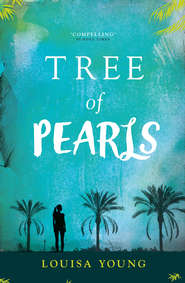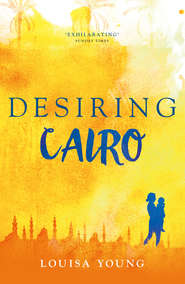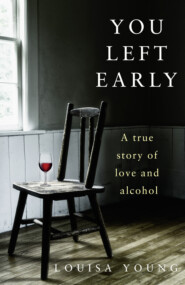По всем вопросам обращайтесь на: info@litportal.ru
(©) 2003-2024.
✖
The Heroes’ Welcome
Автор
Год написания книги
2018
Настройки чтения
Размер шрифта
Высота строк
Поля
He raised his head and stared at her like a hyena about to howl.
‘Why on earth would you do that?’ he said.
‘I’m trying to remember whether we were ever happy.’
You want to remember happiness? Jesus Christ, woman, if one remembers happiness—
‘And whether my love for you is based on anything. I can’t remember. It’s been so long. I want to know. Because I think perhaps we were.’
Oh, God.
‘So what?’ he said, bewildered. ‘That’s the past. It’s dead.’ And – Ha! What a great big lie that is! he thought. If only it were dead. But it’s not even past. The past visited him most nights. Wandering about the wide gates and the hall of death, like Patroclus … She is no doubt thinking about some other past.
‘We were happy,’ she said, stubbornly. ‘We were happy in Venice, and we were happy that night at the Marsham-Townsends’, when we walked by the tennis court … my twenty-fifth birthday. And I was happy when you proposed to me …’
He lifted his mind. He had been thinking about the Trojan War; specifically about when mighty Achilles’ beloved friend Patroclus was killed in battle; about Achilles’ grief, how he locked himself away in his tent, went rather mad really, seeing ghosts and so on. He cut all his hair off, even though he’d promised it to a river god in exchange for a safe return home after the war. He’d refused to fight, though he was the greatest of the Greek heroes, and without him to lead them, the entire army lost faith, and every man in it was at risk. It was as if he no longer cared for his country, or for his leaders, or for his fellow soldiers – he only cared for his one friend. Peter had been thinking, is there an inherent contradiction in hating war and honouring soldiers? And then his mind had flung him back into thinking about soldiers. Dead ones. Loos and the Somme.
So with considerable effort, and for her sake, he lifted his mind from all that, and manoeuvred it round to Venice, and that night at the Marsham-Townsends’, and when he proposed to her. He remembered, for a moment, speaking to her appalling mother, and wondering what her father had been like. He tried to remember why he had proposed to her. Because we danced so well together – was that all? No. Because she was so beautiful? Yes – and … because she was so nice. She was soft, and gave kind advice. I was always pleased to see her when I turned up somewhere, and she was there. She was kind when my father died. All very straightforward, really. And I felt very tall with her on my arm.
All right, then. Yes, back in Arcadia, we were happy.
And at the thought of happiness, remembered happiness, his mind panicked and scattered: pure fear. He closed his eyes, clenched his mind, to hold on.
Hold on to your mind,he whispered to himself. Hold on. You’re tied to the mast. All right.
All right.
Now say something nice to the poor woman. Go on.
He couldn’t.
Julia tried to remember herself before she knew him. Desperate to please, obedient, bossed and squashed by her mother at every turn, her dear dad only a memory. She had realised the game early: the sweeter and prettier she was, the nicer people were to her.
And then there was Peter. How glad she had been to run to him, his amusement, his kindness.
To her, that night at the Marsham-Townsends’ sprang out, glistening with verisimilitude. She smelt the orange-flower water, saw the sheen of starch on the gentlemen’s shirt fronts, heard the waltz, felt the brush even of the palm-frond against her bare white shoulder and her skirts swirling at her ankles, as Peter wheeled her out on to the terrace, whispering – what had he whispered? Something mischievous.
Her mother had been delighted to give her to a man with a big house.
After they were married he’d said: ‘Let’s not have children immediately. Let’s run around and have some fun first.’ She had no idea there could be any choice – she’d known nothing about anything loving, about being on the same side with someone, and being happy together. Then suddenly there it was: she and Peter, together. Yes, happy!
He caught sight of her by the mirror in the hall. She was glancing at herself as he glanced at her. Her eyes fell away from her own taut reflection.
She did that,he thought, to her own face, to be more beautiful, because she thought I loved her for her beauty. She thought it would help. She thought that I, while fighting the bloody war, losing men, Atkins Lovall Bloom Jones oh stop it STOP IT – was most bothered by some idea that my beautiful wife was not beautiful enough. Somehow, apparently, evidently, I let her think that. Though, dear God, I do not understand why anybody would think that washing their face in carbolic acid was going to help anything. But – bad husband – I failed to protect her from this bizarre idiocy of her own. Just as I failed – bad soldier – to protect my men. Both at home and at the Front, I failed. And I wonder if anybody else on this earth can see that she is a casualty of that war just as much as Riley, or me …
The next time she came to lean against his door jamb, he got in first. He pulled his jacket around him, pursed his mouth against the shallow pattering of his heart, and said: ‘None of this is your fault.’
Think about her. Hold on to that. Poor Julia. Really. Poor tiresome bloody woman. ‘I don’t know why you put up with me,’ he said. And I don’t. You don’t have the first idea why I behave so bloody badly. ‘You’ve always done everything you should.’
He looked at her – eyes only, not turning his head – and he saw that she was, with a hopeless inevitability, taking these unexpected kind words at face value and investing them with huge meaning.
Oh, God.
She burst into tears.
Say something.
Not ‘fuck off’. Don’t say that.
‘Oh, Julia,’ he said, trying to buy time, to hold his mind, to make it all go away. ‘I think it’s probably too late for us. I’m an awful crock. But,’ – and here, desperate, he said the only thing which ever stopped her from looking so bloody tragic all the time – ‘I could perhaps not drink so much.’
‘I would like that,’ she said, and he saw the sudden whirling desperate hope erupting inside her. It filled him with despair.
Jesus Christ, Julia,he thought. I will never make you happy. You never will be happy! You’ve ruined your famous beauty, for me – poor fool! I’m a lush and no one else will want you. There is no chance for you now, shackled to me. And yet look at you, all hopeful – dear God, what a woman – let’s make you smile. Perhaps I can make you smile …
‘Well, I’ll give it a go,’ he said. ‘Perhaps I might – should I? Go to one of those places.’ I could do that. Could I? His heart was still going in that sick-making way – too quick and light, and all over the place.
‘Oh, please!’ she cried, too keenly. Clearly she had been about to say, ‘Oh no, of course not!’when she thought: Yes! Grab the chance!
She’s awfully keen to be rid of me,he thought. And who can blame her?
And I’ve overdone it. I can’t do that.
But she was smiling at him, limp and tearful. ‘Oh, darling,’ she said, and corrected herself, quickly: ‘Oh, Peter.’
She looks happy. Dear God, I’ve made her happy! It’s so easy. But I can only do it by lying.
So lie. You owe her that.
Anyway, you lie to yourself all the time.
She was saying she would find someone, she would ask Rose, she was certain things could be better, she was so glad. She jumped up and went off to get on with it all.
Oh, Jesus.
In the course of the rest of the day he drank almost half a bottle of whisky and two bottles of wine. ‘Final fling,’ he said cheerfully. Julia beamed at him, the tight smile of her skin lit from within by a genuine if bewildered hope.
Keep away from me,he thought. Just keep away from me.
Chapter Three (#ulink_2c30910e-cee1-5b4e-9979-5e5c78e1dbc8)
Locke Hill, March–April 1919
To Rose it looked nothing like a fling. It looked like desperate unhappiness, i.e. business as usual.
The newlyweds heading off into eternal nuptial joy meant that Rose was now on her own with the two ghouls, the two fluttering, ragged banners gloriously emblazoned, in Rose’s eyes, with her failure to save them. Peter and Julia lurched through her days and tagged across her mind, united in bitterness, loss and the seeming impossibility of redemption. Frankly, Rose preferred being at work with Major Gillies at the Queen’s Hospital, looking after the facial injury patients. There at least the men were getting better, and moving on, or they were dying – but at least they were not stuck on a ghastly merry-go-round of their own making, with so little idea how they got on, and no idea how to get off. Not that I know any better, Rose thought. It’s just that I can see their every mistake – the ones they’ve made and the ones they’re still making.
Peter did not go somewhere. The idea of ‘going somewhere’ dissolved with the daylight: he would not go somewhere because, it turned out, the places he might go required him not to drink at all. He seemed to think alcohol was a balanced diet – untouched trays went in and out of the study, where he sat with the blind half down, reading his Homer. Rose would stick her head in, calling him old bean, trying to tempt him out with walnut cake (they had to chase every scrap of food into him), and minding so much that he didn’t seem to mind when she treated him like a schoolboy. And equally untouched trays went up and down the stairs to Julia, who went up to bed and stayed there, ‘resting’, later and later in the mornings, longer and longer hours, the room over-warm and the curtains half open, promising that she would really try, about the getting up. Oh the curtains – Millie the housemaid trying to open them, in the interests of fresh air and health and doing as Rose had instructed her, and Julia telling her not to, and Millie, disgruntled, leaving them hanging as nobody wanted them: half open, limp, unconvincing, unconvinced. Slatternly. Millie had been a pest ever since having to come back into service, after being sacked from Elliman’s for flirting with the foreman. It wasn’t Rose’s job to hire and fire, any more than it was to look after Peter and Julia – but when a vacuum develops in a household, someone like Rose, with her strong hands and her clear eyes, cannot help but fill it.











